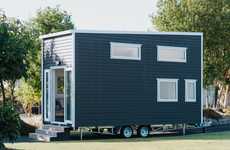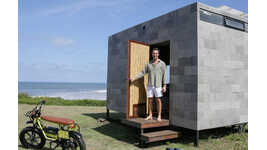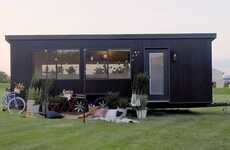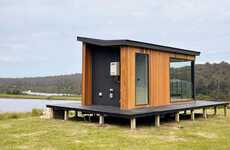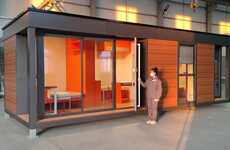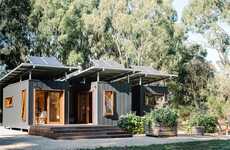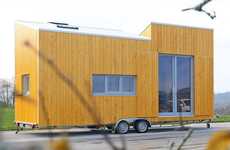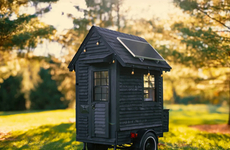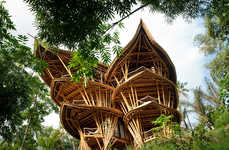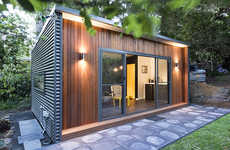
'The Tiny' is Built From 99% Recycled Materials
Rahul Kalvapalle — November 12, 2014 — Eco
References: theupcyclist.au & gizmag
'The Tiny' is a tiny off-grid space made from around 99% recycled materials and is designed to serve as an extra bedroom or a studio. The structure was designed and constructed in just 3 months thanks to a collaboration between The Bower -- a Sydney-based co-operative repair and reuse center -- and various partners.
The project is the brainchild of James Galletly, who is looking to spread awareness about the small living movement.
The Tiny is equipped with a solar-powered electrical system which includes LED lighting, an inverter and a power point for charging laptops and other electronic devices.
The Tiny will eventually be sold at auction, with the proceeds set to be split between The Bower and Galletly's next project, a larger and more equipped tiny home.
The project is the brainchild of James Galletly, who is looking to spread awareness about the small living movement.
The Tiny is equipped with a solar-powered electrical system which includes LED lighting, an inverter and a power point for charging laptops and other electronic devices.
The Tiny will eventually be sold at auction, with the proceeds set to be split between The Bower and Galletly's next project, a larger and more equipped tiny home.
Trend Themes
1. Eco-friendly Living - There is a growing trend towards eco-friendly living, and businesses can capitalize on this by incorporating sustainable materials and renewable energy in their products and services.
2. Off-grid Living - Off-grid living is becoming increasingly popular, and businesses have an opportunity to develop innovative solutions such as portable, self-sustaining homes and renewable energy systems.
3. Small Living Spaces - The small living movement is gaining momentum, and businesses can create disruptive innovations by designing innovative and functional small living spaces that are affordable, eco-friendly, and customized to meet the needs of different consumers.
Industry Implications
1. Construction Industry - The construction industry can develop eco-friendly building materials and technologies for small living spaces, such as recycled insulation, sustainable roofing, and renewable energy systems.
2. Real Estate Industry - The real estate industry can capitalize on the growing demand for small living spaces by developing innovative financing models and marketing strategies that cater to consumers looking for affordable, eco-friendly and functional homes.
3. Consumer Electronics Industry - Consumer electronics businesses can develop portable, energy-efficient electronics and renewable energy solutions designed for small living spaces, such as solar-powered laptops, LED lighting, and portable battery packs.
5.7
Score
Popularity
Activity
Freshness

